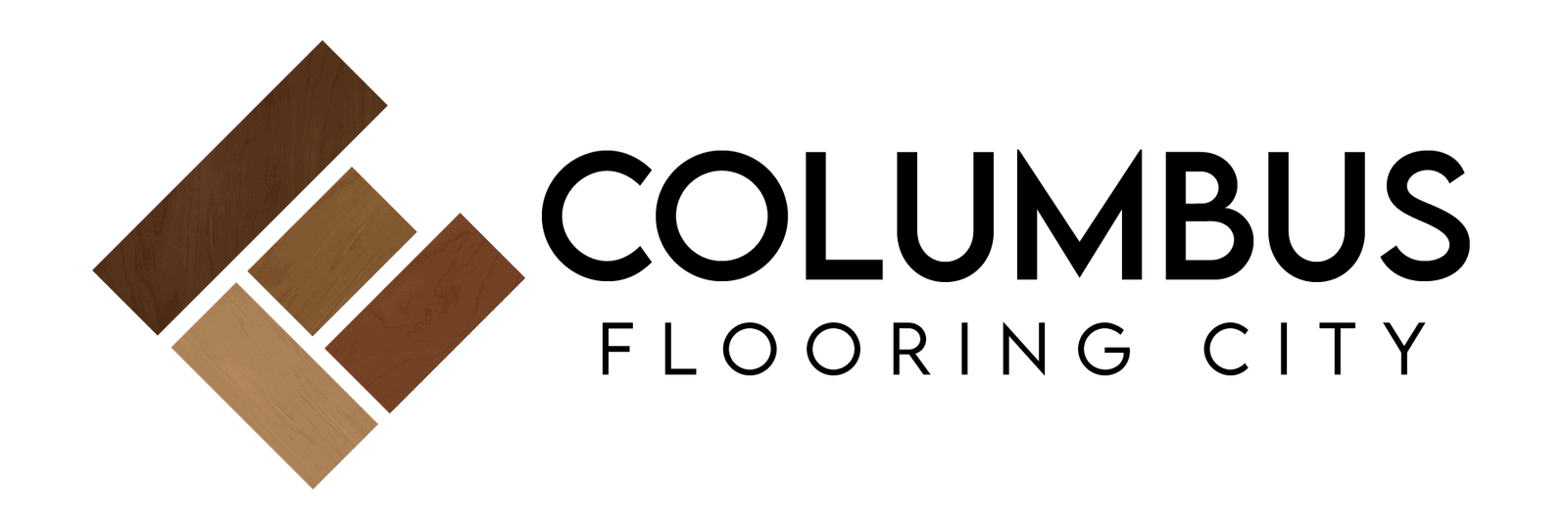If you’re thinking of installing new floors in your home and hardwood flooring is on your list, then it will be a fantastic choice. It’s a classic choice that can add warmth and style to your space. But before you dive in and commit to those gorgeous oak planks, it’s important to weigh the pros and cons of hardwood flooring.
Hardwood may be the dream, but it has some downsides. However, for many homeowners, the beauty and value hardwood adds far outweigh the potential negatives.
If you go in with realistic expectations about what’s involved with hardwood flooring, you’ll be enjoying those stunning floors for years to come. In this guide to hardwood flooring, we analyze its cost-benefit ratio, contrast it with other flooring kinds, and look at its longevity and durability.
Let’s take a look at what you need to know before making your final decision.
The Pros of Hardwood Flooring
There are several pros and cons of hardwood flooring; let’s start with the Advantages of hardwood flooring.
Beauty
Hardwood floors are gorgeous. Wood adds warmth and character to any space. With different wood types and stains, you can achieve any look, from rustic to modern.
Easy to clean
Hardwood floors are a breeze to clean and maintain. Regularly sweep, vacuum, and damp mop with a wood floor cleaner. Spills and messes wipe right up. No more carpet stains!
Long-lasting
Properly cared for, hardwood floors can last a lifetime and beyond. They hold up well to heavy use and traffic. Small dents and scratches can often be buffed out, and floors can be refinished for a brand-new look.
Healthy
Hardwood floors don’t trap dust, mold, and mites like carpet. They produce no toxic fumes and are better for those with allergies. Wood is also naturally antibacterial.
Versatile
Hardwood floors complement any decor and style. They provide a neutral background you can dress up or down. And they easily transition between seasons.
Easy installation
Hardwood floors are easy to install as a DIY project or by a professional. They can go right over existing flooring, saving time and money.
You can read our previous detailed guide for more information regarding hardwood installation methods.
Added home value
Hardwood floors are highly desirable and add significant value to your home. Homebuyers will pay a premium for this classic flooring type.
While hardwood floors require an initial investment, their many benefits make them well worth considering for your home. Proper care and maintenance should provide you with comfort and style for years.
The Cons of Hardwood Flooring
Hardwood flooring is gorgeous; as we said, there are pros and cons of hardwood flooring, so it’s important to consider the disadvantages of hardwood flooring you should be aware of before installing it in your home.
Cost
Hardwood flooring typically costs between $5 to $10 per square foot, depending on the type of wood. That can add up quickly for large spaces! While it may increase your home value, the initial investment is significant.
Durability concerns
Hardwood can dent, scratch, and stain more easily than other flooring types like tile or laminate. High heels, pet nails, and heavy furniture can cause damage. You’ll need to be diligent about wiping up spills and protecting the floor.
Moisture issues
Hardwood reacts badly to excess moisture and humidity. Spills, leaks, or pet accidents can cause warping, cupping, or rotting. Bathrooms and basements may not be ideal locations. You’ll want to control humidity levels in the home and avoid installing hardwood in very damp areas.
Noise
Hardwood floors amplify the sounds of walking, dropping objects, and moving furniture. They aren’t ideal if you want to minimize noise between levels or rooms in your home.
Hardwood flooring has a lot going for it but also some potential downsides. Make sure to weigh the pros and cons carefully based on your needs, budget, and lifestyle before deciding if hardwood is right for you. Hardwood flooring may last a lifetime with the right upkeep and care.
Hardwood Flooring Cost-Benefit Analysis
When evaluating the hardwood flooring cost-benefit analysis, it’s essential to consider the long-term benefits and return on investment. While hardwood floors may have a higher upfront cost, they offer several advantages that can outweigh the initial expense:
Increased Home Value
Hardwood flooring is often seen as a desirable feature by homebuyers, which can significantly increase the value of your property. Hardwood flooring may be a powerful selling factor when it’s time to sell your house and may even help you get a better sale price.
Longevity and Durability
Hardwood floors can last for decades or generations, unlike other flooring options requiring periodic replacements. This longevity translates into long-term savings, as you won’t need to invest in new flooring as frequently.
Timeless Aesthetic Appeal
The timeless elegance of hardwood floors can enhance the overall aesthetic appeal of your home. They create a sense of warmth, sophistication, and style that other flooring materials can’t replicate. Hardwood flooring cost can significantly impact the visual appeal of your living space.
Discover our affordable hardwood flooring collection, where quality meets affordability. With durable construction and long-lasting performance, our affordable hardwood floors provide exceptional value for your home. Experience the beauty and durability of hardwood at an affordable price with our outstanding collection.
[Prodduct listing here]
Hardwood Flooring: Durability and Longevity
Despite the pros and cons of hardwood flooring, the durability and lifespan of hardwood floors make them an excellent investment for your home. Hardwood floors are designed to last a lifetime with proper care and maintenance. Homeowners opt for hardwood over other flooring types because their durability and longevity are two main reasons.
Natural wood stands the test of time
Hardwoods like oak, maple, and hickory are naturally durable and resistant to damage. The dense, solid wood can withstand years of foot traffic, furniture scraping, and general wear and tear. With periodic sanding, staining, and refinishing, hardwood floors can look brand new for decades.
- Hardwoods have been used in home construction for centuries, and some historic floors have lasted over 100 years.
- Exotic hardwoods like Brazilian walnut and tigerwood are especially hardy.
Proper installation and protection are key
How well your hardwood floors last depends greatly on how installed and treated. Professionally installed floors fitted tightly with durable finishes tend to have the longest lifespans. It also helps to place protective pads under furniture, remove shoes at the door, and avoid excess moisture, which can cause warping or water damage.
- Factory-finished floors with aluminum oxide or polyurethane coatings provide the best protection. Site-finished floors may wear faster but can be refinished multiple times.
- Place mats at entryways to reduce dirt and grit that can scratch floors.
- Wipe up spills immediately and never wet mop hardwood.
With the right wood type, proper installation and care, and periodic refinishing, hardwood floors can serve your home beautifully for a lifetime. Their timeless style and longevity make hardwood a flooring choice you’ll never regret. While the initial cost may be higher than other options like carpet or laminate, hardwood pays off through years of use and by increasing your home’s value. Hardwood flooring is an investment that stands the test of time for durability, longevity, and value.
Comparing hardwood to other flooring types
When discussing the pros and cons of hardwood flooring and comparing hardwood to other flooring types, it’s important to consider various factors. Let’s take a closer look at how hardwood flooring compares to some alternatives:
Cost
Hardwood flooring typically costs between $3 to $10 per square foot, depending on the type of wood you choose. Exotic hardwoods like mahogany or teak are on the higher end of that range, while more common options like oak or maple are more affordable. Laminate and tile are often cheaper, from $1 to $5 per square foot. Carpet is usually the most budget-friendly choice, starting around $2 per square foot.
Durability
Hardwood floors can last 50-100 years or more with proper care and maintenance. They tend to scratch and dent more easily than tile or laminate. Carpet has the shortest lifespan, needing replacement after 5-15 years in high-traffic areas. Laminate and tile also last 15-30 years. Choose a hardwood with a high Janka hardness rating, like hickory, oak, or maple, for the best durability.
Eco-Friendliness
Hardwood and tile are considered more eco-friendly since they are made from natural materials and last longer. Laminate contains toxic chemicals and isn’t biodegradable. Carpet also produces more waste in landfills and off-gasses volatile organic compounds. For the greenest option, choose reclaimed or fast-growing hardwoods.
Ultimately, weigh all these factors carefully based on your needs, priorities, and budget to determine which flooring type is right for your space. Hardwood may be the premium choice, but another option could suit you better.
Conclusion
So there, you have everything you need to know about hardwood flooring to make an informed decision for your home. Hardwood certainly isn’t for everyone, and it comes down to your needs, budget, and lifestyle. If you want a floor that will stand the test of time, hardwood is a great choice.
You have to weigh the pros and cons of hardwood flooring according to your situation. But with the wide range of hardwood species, styles, and prices available today, hardwood flooring has more to offer than ever. So start browsing options, get samples to see in your home, and you might find the perfect hardwood floor.
FAQs
What are the disadvantages of wood flooring?
Wood flooring has a few disadvantages to consider. These include higher initial cost compared to other flooring options, susceptibility to scratches and dents, vulnerability to moisture damage if not properly maintained, and the need for regular maintenance and refinishing.
Are hardwood floors a good idea?
Hardwood floors are typically considered a wise choice because of their classic elegance, sturdiness, and potential to raise a home’s value. They offer a natural, warm aesthetic that can last decades when properly maintained.
Is wood flooring high maintenance?
It must be maintained often to keep wood flooring in good condition. While it is relatively easy to clean, it needs periodic sweeping, mopping, and occasional refinishing to address wear and tear, scratches, and fading. However, the maintenance required is worth it for the longevity and beauty of hardwood floors.
Which is better, laminate or hardwood flooring?
Choosing between laminate and hardwood flooring depends on personal preferences and specific needs. Hardwood flooring offers natural beauty and durability and can increase home value. Laminate flooring is more affordable, resistant to scratches and moisture, and easier to install. In the end, while choosing between the two solutions, it’s crucial to consider elements like budget, desired aesthetic, and level of durability.

